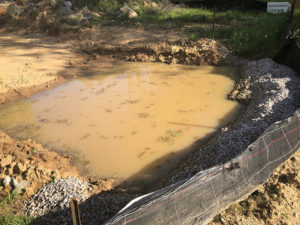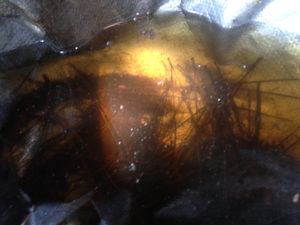Mosquito Activity on the Rise
go.ncsu.edu/readext?694817
en Español / em Português
El inglés es el idioma de control de esta página. En la medida en que haya algún conflicto entre la traducción al inglés y la traducción, el inglés prevalece.
Al hacer clic en el enlace de traducción se activa un servicio de traducción gratuito para convertir la página al español. Al igual que con cualquier traducción por Internet, la conversión no es sensible al contexto y puede que no traduzca el texto en su significado original. NC State Extension no garantiza la exactitud del texto traducido. Por favor, tenga en cuenta que algunas aplicaciones y/o servicios pueden no funcionar como se espera cuando se traducen.
Português
Inglês é o idioma de controle desta página. Na medida que haja algum conflito entre o texto original em Inglês e a tradução, o Inglês prevalece.
Ao clicar no link de tradução, um serviço gratuito de tradução será ativado para converter a página para o Português. Como em qualquer tradução pela internet, a conversão não é sensivel ao contexto e pode não ocorrer a tradução para o significado orginal. O serviço de Extensão da Carolina do Norte (NC State Extension) não garante a exatidão do texto traduzido. Por favor, observe que algumas funções ou serviços podem não funcionar como esperado após a tradução.
English
English is the controlling language of this page. To the extent there is any conflict between the English text and the translation, English controls.
Clicking on the translation link activates a free translation service to convert the page to Spanish. As with any Internet translation, the conversion is not context-sensitive and may not translate the text to its original meaning. NC State Extension does not guarantee the accuracy of the translated text. Please note that some applications and/or services may not function as expected when translated.
Collapse ▲Memorial Day weekend is often the signal to fire up the grills. However, the previous week’s heavy rains in many areas of the state have also fired up mosquitoes who aren’t practicing “social distancing” as they look for a meal.
Areas such as the one shown here which are designed to prevent run-off into nearby rivers may hold stagnating water for weeks; plenty of time to generate a generation of mosquitoes.
Regardless of whether you plan to treat for mosquitoes, whether that’s using a backpack mister against adults or Mosquito Dunks dropped into pools of larvae-filled stagnant water, NOW is the time to get some outdoor exercise and see where these water-filled areas are located and try to eliminate them as best we can. Aside from pooled water in or near our yards, there are many other areas and objects that can serve as mosquito breeding sites.
As I have mentioned previously, an unpublished study in the 1980s led by Dr. Charles Apperson (professor emeritus in NC State University’s Entomology & Plant Pathology Department) looked at where Asian tiger mosquitos were breeding in typical residential settings in New Hanover County. Here’s what they found:
| Containers used as breeding sites by Asian tiger mosquitoes | |||
| Source | No. Positive | Total Examined | Percent Positive |
| Miscellaneous containers | 92 | 148 | 62.2% |
| Buckets | 24 | 39 | 61.5% |
| Plant dishes | 33 | 48 | 68.8% |
| Tree holes | 7 | 8 | 85.5% |
| Plastic film (tarps) | 8 | 11 | 72.7% |
| Bird baths | 8 | 27 | 29.6% |
| Tires | 11 | 20 | 55.0% |
| Toys | 8 | 14 | 57.1% |
This serves as a good reminder that we are frequently the cause of our own mosquito problems and that “Tip & Toss” are still our first line of defense against mosquitoes.
Over the last few years, July has been the month where we see the first report of eastern equine encephalitis (EEE) impacting on horses in the state, most commonly in southeastern NC and typically with horses that were not vaccinated earlier in the year. EEE is often fatal in horses. One thing we can count on is that mosquito populations will continue to rise throughout the summer and into the early fall, particularly if we do get severe weather or possibly a hurricane and flooding. So, even if you’re behind in getting your horse vaccinated, talk to your veterinarian about what steps you should take now before the likelihood of the animal getting bit by an infected mosquito catches up with you. On the human side, the first cases of mosquito-borne disease such as EEE, LaCrosse Encephalitis and West Nile Virus often begin to appear in June-July. So, as we all spend more time outdoors hiking, biking or gardening (or removing those water and mosquito-filled objects), wear repellent!! If you decide to treat your yard for mosquitoes, take time also to look on the other side of fence to make sure you’re not accidentally spraying your neighbor’s vegetable garden. Many of the commonly used mosquito products are not labeled for use on edible plants and may have restrictions on spraying plants (and weeds) that are in bloom or may have chemical drift onto them. Let your neighbors know about your plans in case they have taken up backyard beekeeping or the pets or children are frequently outside where the chemical can drift. Good communication makes for good neighbors~
For further information mosquitoes and repellents, see:




